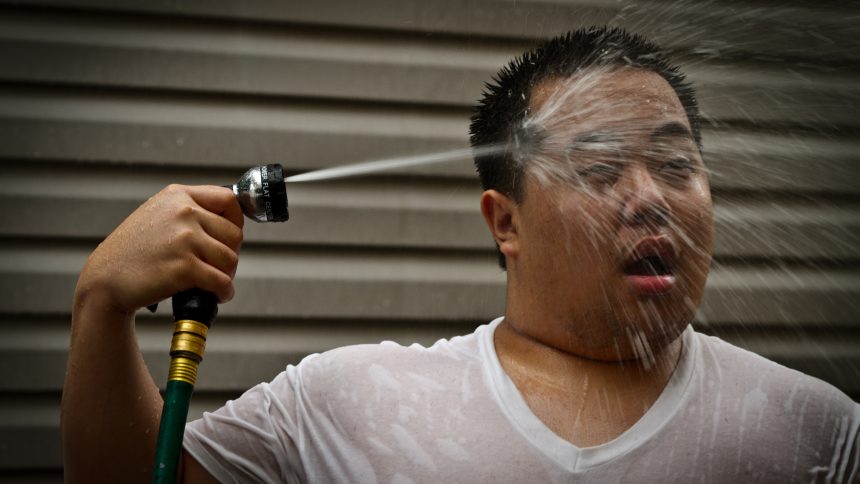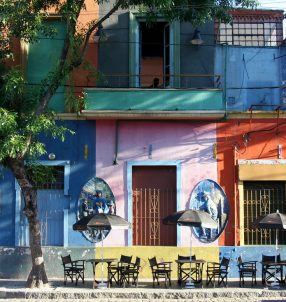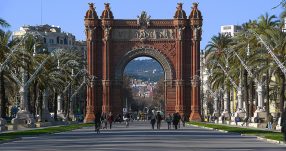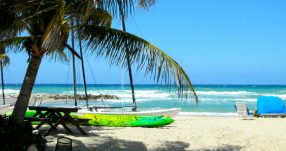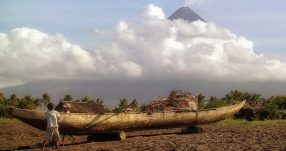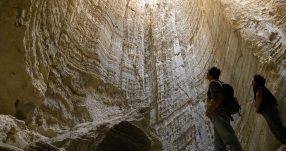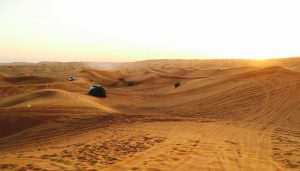Central and Eastern Europe as well as parts of the Balkans are boiling under a continuous heatwave. A/Cs break due to overload, fans run on their maximum and probably the worst thing: there is a serious supply shortage of Callipo and other water ice brands. It’s not only summer. It is one of the hottest summers Europe has ever experienced.
Just a month ago, another heatwave hit UK, France, Germany, smashing some all-time temperature records. Nineteen cities in the Czech Republic can boast with new heat records. Kitzingen in Germany recently scored unbelievable 40.3 °C, even topping Poland’s new all-time record of 38.9 °C from last Saturday.
But not only Europeans are getting roasted like chickens in the oven. Last week Bandar Mahshahr in Iran hit the second highest heat index ever with 74 °C. In India, a heat wave in June caused about 2500 deaths.
Don’t despair, relief is in sight! However, we’ve still got to get over the weekend, before East and Central Europe can relax with more pleasant temperatures.
Europe still remembers the heatwave of 2003, which took a death toll of 30 000 to 70 000 within just a few weeks. Heatwaves can be deadlier than any other natural disaster, since the effects are sneaking in slowly. But unlike for many other natural disasters, we can prepare very well for a heat wave. Heat strokes, dehydration, drowning as well as smog as poor air conditions are the main factors for fatalities and most of them can be prevented.
Photo Header: Guian Bolisay
What Are The Risks of A Heat Wave?

Especially the elderly, children and extremely overweight people are at risk. But if you are into outdoor activities like hiking, you should pay close attention to the signals of your body, too.
Look out for these warning signs, not only for yourself, but also for others:
Heat Cramps
They often occur in the legs, but also in the arms or in the stomach. These cramps are a sign of dehydration and as such relatively easily treated. You should immediately take a rest, drink lots of water, or even better a sports drink, since you also have to replace salts and minerals, not only liquid.
Heat Exhaustion
Your body is not able to produce sweat anymore, so it diverts the blood from your inner organs, in a desperate effort to cool its surface. The symptoms are dizziness, paleness, nausea and high temperature. Go immediately into the shade, rest and drink lots of water. Try to cool your body, if possible take a cold bath or at least remove all unnecessary clothing. Monitor the symptoms closely, and if they don’t disappear within 15min, you should call professional help. Heat exhaustion can develop into a heat stroke, so it should not be taken easily.
Heat Stroke
This is a serious condition that requires emergency medical aid immediately! Those affected are hot and flushed, but they don’t sweat. Unconsciousness, delirium, high body temperature above 40° C, headache, vertigo, thirst, confusion and dry skin are symptoms. Cool affected people immediately and call professional help!
What to Do to Avoid Negative Effects of The Heat on The Body?
To avoid any heat related diseases, you should generally refrain from sports and physically demanding activities. And while getting out of the city is a good idea, since the concrete is functioning as a heat storage and even worsens the temperature effect, extreme hiking or other outdoor activities – except from cooling down in a lake – are not recommended. But if we absolutely can’t convince you, to postpone your hiking adventure across Eastern Europe and the Balkans, here are some tips for surviving the heatwave:
- Take a mobile phone with you. Tell someone where you go and when you are expected to return and ideally don’t go alone.
- Walk in the early morning or in the late afternoon, rest between 11 am and 15 pm.
- Drink water. ALL. THE. TIME. Even drink when you think you are not thirsty. You need it! Generally 3,5l daily are recommended. Being physically active, you need to increase this amount appropriately.
- Remember, you don’t only lose water, but also salts and minerals. Fruit juices and sport drinks help to replace them.
- Take it slow. If you’d do a hike normally within 3 hours, plan with twice the time. Rest whenever you feel like it and even more often.
- Go for the tuna salad instead of that huge plate with piles of grilled meat and french fries. Eat well balanced and light meals, to make it as simple as possible for the body to digest, so it doesn’t have to increase its temperature.
- Cover your head to save it from sun
- Most importantly: Listen to your body! When you feel any signs of exhaustion, headache, dizziness or anything else, take a rest, drink water and cool your body!
About the author
Barbara
Barbara is a German-born Austrian with unresolved identity issues and a degree in Ecology and Nature Conservation. Three years ago, she moved to Budapest, Hungary. She travels the world whenever she can, equally chasing interesting stories and fluffy cats. She is a travel writer who loves adventure and never says no to any challenge.
In adventure travel news, n innovative new natural desert reserve spanning 10 percent of the total area of Dubai has been launched in the UAE. The Marmoon Desert Reserve Project is set to be the site of several ecotourism projects and conservation efforts contributing to the protection and nurturing of the environment,…
Hot Topics
In adventure travel news, n innovative new natural desert reserve spanning 10 percent of the total area of Dubai has been launched in the UAE. The Marmoon Desert Reserve Project is…


